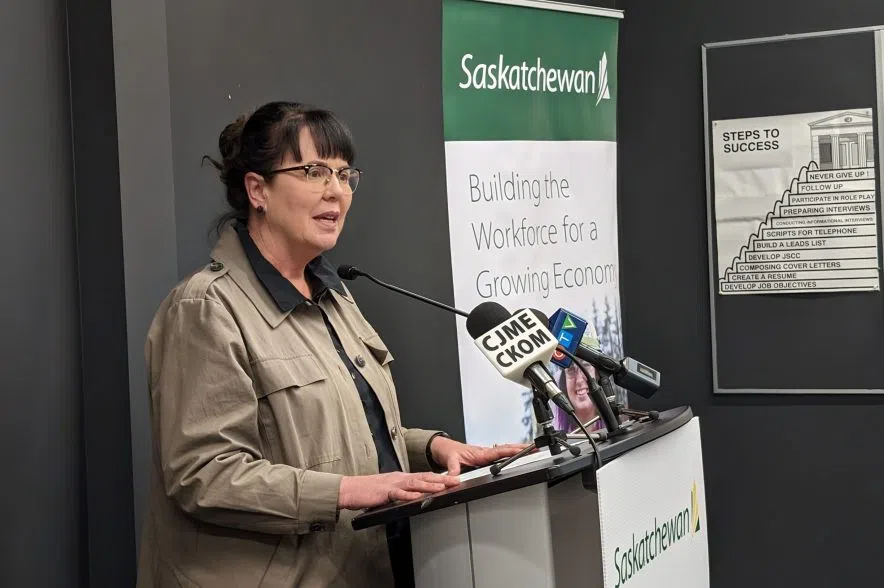A new trades program for women is coming to Saskatchewan.
It’s called Journey to Trades and it is a pre-employment program that provides women with the skills they need to start their careers in trades.
The program is coming to Regina through a collaboration between the Government of Saskatchewan and Women Building Futures (WBF) in Edmonton.
The investment of $248,000 towards Journey to Trades will support 18 participants over the next year.
It will help students like Martin Melnyk, who graduated from the program back in 2020. She is a field technician and nearly in her fourth year as an electrical apprentice.
The program helped her secure a job while she was still in school.
“It gave me economic security,” she said. “I have a good credit rating now. I’m able to buy the vehicles I want (and) things like that. I can do the little extra things for my family and pay our bills. It’s been transformative for that.”
She recommends the program to other women.
“I wish more people and women knew about this program,” she said.
“From beginning to end, it’s a complete process. It will transform you and add to your confidence. Anything you’re scared about, there is always support. Whether it’s from other women in the program or the expertise of the staff, there will be someone there to help you through it.”
Melnyk said the program set her up for great success.
“The program is very complete,” she said. “It refreshes all your school skills. When you go for your trades apprenticeship, you have to complete a certain amount of schooling. That was a crucial part of Women Building Futures. In the program, they do a school refresher, so any women that maybe took school a while ago or just need a refresher, in the first part of the program they do that.”
READ MORE:
- Saskatchewan adding 150 more seats to apprenticeship and trades commission
- Saskatoon trades course equipping women for work in male-dominated industry
- Regina woman finds empowerment in the skilled trades
Carol Mowen is the president and CEO of Women Building Futures. She’s excited to bring the program from Alberta to Regina.
“It’s a 12-week program that includes upgrading in academics and also all the safety tickets that are required for women to move onto the construction sites or into industry,” she said.
“We often say through the program we build capability, through the actual training, but also confidence in the graduates coming out. Because of course, even if they’re ready, they’re moving into a workplace where they’re underrepresented so confidence is important.”
The women get to explore up to six different trades, including carpentry, welding, electrical, steam-fitting and pipe-fitting. One week is dedicated to learning about each trade in depth.
Over the past year, nearly 200 women have graduated from the program.
“Nearly 90 per cent of them were employed in a new career in an area directly related to their training,” Mowen said. “The average starting wage across our entire program was 1.3 times the living wage, so it was a wage that they could support not only themselves but their families as well.
“We’re also really proud that across our programs almost 25 per cent of the women that graduate are also Indigenous women. We would like to do deliberate work to serve even more Indigenous women going forward.”
She said the true mission of the program is economic security for women. WBF partners with companies that go through self-assessments of their interest and commitment to a safe and inclusive space. Mowen said this helps with long-term sustainability for the program’s graduates.
“Women Building Futures started 25 years ago by a group of social workers who were supporting a group of single moms living in poverty,” she said. “They trained them to be carpenters. They had resilient and successful careers that they could be proud of and support their family on.
“Our mission continues 25 years later to be about unemployed and underemployed women. Not only can we help these women, but we can also help the great employers that we partner with to diversify their workforces.”
Laura Ross, Saskatchewan’s minister responsible for the status of women office, said the investment was a no-brainier.
“We know that there’s challenges with having enough qualified people in the workforce,” Ross said. “When you have over 50 per cent of your people being women, let’s ensure that they’re participating to their full capacity. This makes sense. It’s good for the economy.”
— With files from 980 CJME’s Lisa Schick







